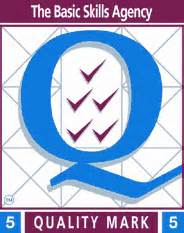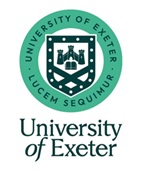Phonics
Phonics is a key strategy that supports the development of early reading skills. At St Edmund’s we combine quality phonic instruction with exposure to a range of texts and the promotion of reading for pleasure to provide our children with the skills they need to have a successful start to their lives as readers
We believe that developing reading skills early allows our children to learn and grow within our curriculum. Reading helps us to acquire new knowledge, understand the world. It is through reading that we access all other subjects which makes phonics vital.
At St Edmund’s we believe in the importance of a strong and evidence-based systematic synthetic phonics scheme. As a school, we have introduced the Little Wandle Letters and Sounds Revised scheme as the core of our Phonics teaching. This scheme is approved by the Department of Education and has proven to be strong base for the teaching of phonics.
We implement this approach through an array of visual, auditory and kinaesthetic methods to support our phonics teaching. Little Wandle is supported by a variety of Harper Collins resources including flashcards, wall friezes and grapheme charts as well as 120 fully decodable reading books to support their reading. The books are age and stage appropriate and they enable us to meet the individual needs of our pupils while catering for their interests.
The teaching of Phonics is fast-paced, we encourage all children to actively participate in each lesson, and by encouraging the children to take ownership of their learning we are continuously striving for excellence.
At St Edmund's School, we ensure that we provide all children with the fundamental skills that will enable them to be confident and fluent readers.
In line with the Little Wandle planning, we allocate the phases across Nursery to Year Two as follows:
Foundations for phonics in Nursery.
We provide a balance of child-led and adult-led experiences for all children that meet the curriculum expectations for 'Communication and Language' and 'Literacy'. These include:
- Sharing high-quality stories and poems
- Learning a range of nursery rhymes and action rhymes
- Activities that develop focused listening and attention, including oral blending
- Attention to high-quality language
We ensure Nursery are well-prepared to begin learning grapheme-phoneme correspondences (GPCs) and blending in Reception.
Daily phonics lessons in Reception and Year One
We teach phonics for up to 30 minutes a day. In Reception, we build from 10-minute lessons, with additional daily oral blending games, to the full-length lesson as quickly as possible. Each Friday, we review the week's teaching to help children become fluent readers.
We follow the Little Wandle Letters and Sounds Revised expectations of progress:
- Children in Reception are taught to read and spell words using Phase 2 and 3 GPCs, and words with adjacent consonants (Phase 4) with fluency and accuracy.
- Children in Year One review Phase 3 and 4 and are taught to read and spell words using Phase 5 GPCs with fluency and accuracy.
Daily Phonics Lessons in Year 2
In the Autumn Term we teach phonics for up to 30 minutes a day with an emphasis on revising Phase 5 planning, this prepares any of the children who may need to re-take the Phonics Screening test.
Using our phonics knowledge as a solid foundation, the children move on to learning weekly spelling patterns which supports their early writing skills.
In lower Key Stage 2, Year 3, pupils may be identified as still requiring phonic support to ensure their reading and spelling is of an age and stage appropriate level. To support this, we plan phonics ‘Rapid catch-up’ lessons to address specific reading gaps. These short, sharp lessons last 20 minutes and take place at least three times a week.









